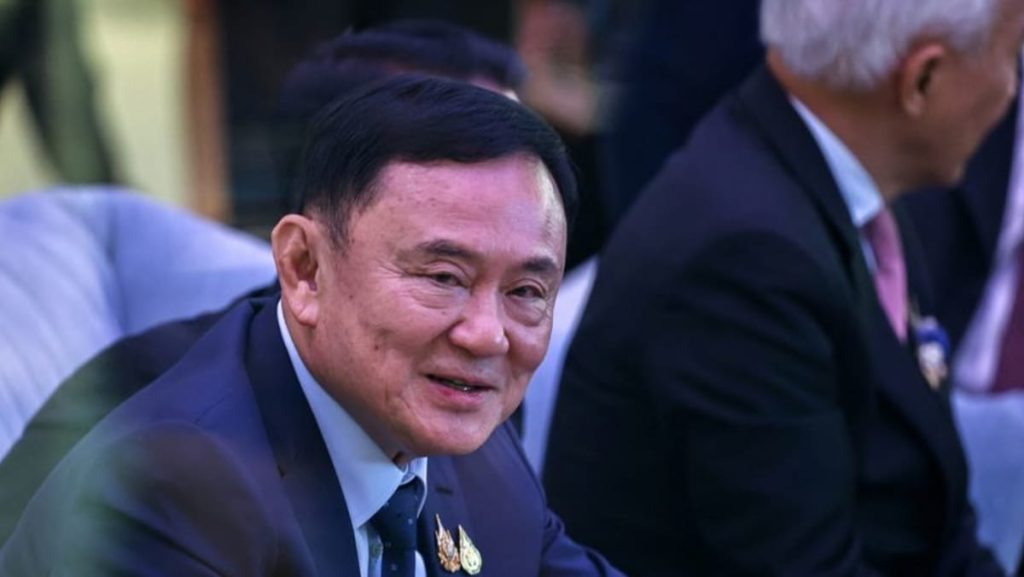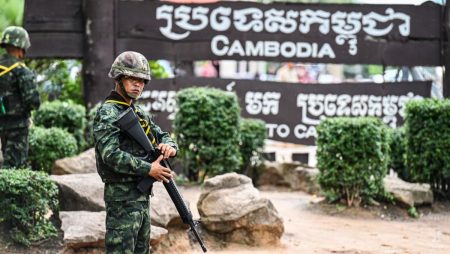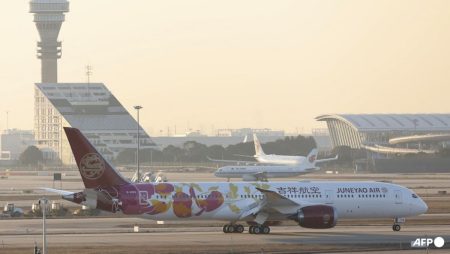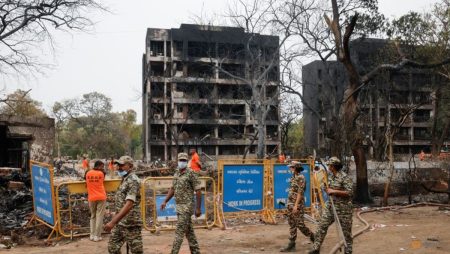The political landscape of Southeast Asia is characterized by a complex interplay of historical relationships, internal power struggles, and regional alliances. A recent development adding to this complexity is the return of former Thai Prime Minister Thaksin Shinawatra from self-imposed exile and his subsequent involvement in discussions concerning the ongoing crisis in Myanmar. Thaksin’s history, political connections, and unique position within the Thai establishment present a potential avenue for influencing the situation in Myanmar, especially concerning negotiations with rebel groups. This potential role, however, is fraught with complexities and raises questions about Thailand’s foreign policy approach, its relationship with Malaysia, and the broader dynamics within the Association of Southeast Asian Nations (ASEAN).
Thaksin’s potential role in mediating the Myanmar crisis stems from his established network of connections and his perceived ability to engage with actors that other nations, particularly Malaysia, might find difficult to approach. Experts suggest that Malaysia, despite its position as a regional leader and its experience in dealing with internal conflicts, prefers a cautious approach to intervening in the internal affairs of other ASEAN member states. This reluctance opens a space for Thailand, under the guidance of a figure like Thaksin, to potentially play a more active role. This dynamic also highlights the delicate balance that ASEAN nations strive to maintain between respecting national sovereignty and addressing regional stability concerns.
Thaksin’s history as a controversial figure in Thai politics adds another layer of intrigue to this scenario. Having been ousted in a military coup, lived in exile for years, and recently returned to Thailand to face, albeit briefly, imprisonment, Thaksin’s political capital and influence are difficult to quantify. His return, however, and the subsequent royal pardon reducing his sentence, suggest that he retains a significant level of influence within the Thai establishment. This influence could be leveraged to facilitate dialogue with the various stakeholders in the Myanmar conflict, potentially opening channels of communication that have remained closed to other diplomatic efforts.
The relationship between Thailand and Malaysia also plays a crucial role in this evolving situation. Thailand’s open support for Malaysia’s role as ASEAN chair signals a willingness to collaborate on regional issues, particularly the Myanmar crisis. This collaborative approach could create a more unified front within ASEAN, strengthening the bloc’s ability to address the crisis effectively. Furthermore, there appears to be a level of personal understanding between Thaksin and Malaysian Prime Minister Anwar Ibrahim, both having experienced political imprisonment. This shared experience could foster trust and facilitate communication, potentially leading to more effective diplomatic efforts.
The complexities of the Myanmar crisis extend beyond the immediate political landscape. The involvement of rebel groups, the military junta’s resistance to international pressure, and the humanitarian crisis unfolding within the country all contribute to a volatile and unpredictable situation. Finding a path towards a peaceful resolution requires a nuanced understanding of the intricate web of actors involved and their respective interests. Thaksin’s potential involvement, while controversial, could offer a new avenue for engagement, particularly given his purported ability to reach actors that have remained inaccessible to traditional diplomatic channels.
Ultimately, the effectiveness of any mediation efforts, including those potentially involving Thaksin, hinges on the willingness of all parties to engage in good-faith negotiations. The Myanmar crisis represents a significant challenge for ASEAN, testing the organization’s ability to uphold its principles of non-interference while simultaneously addressing a regional security and humanitarian crisis. The evolving role of Thailand, the potential influence of Thaksin, and the collaborative spirit between Thailand and Malaysia as ASEAN chair will be crucial factors in determining the trajectory of the situation and the prospects for a peaceful resolution. The international community will be watching closely as these dynamics unfold and their impact on the future of Myanmar and the stability of the region.










